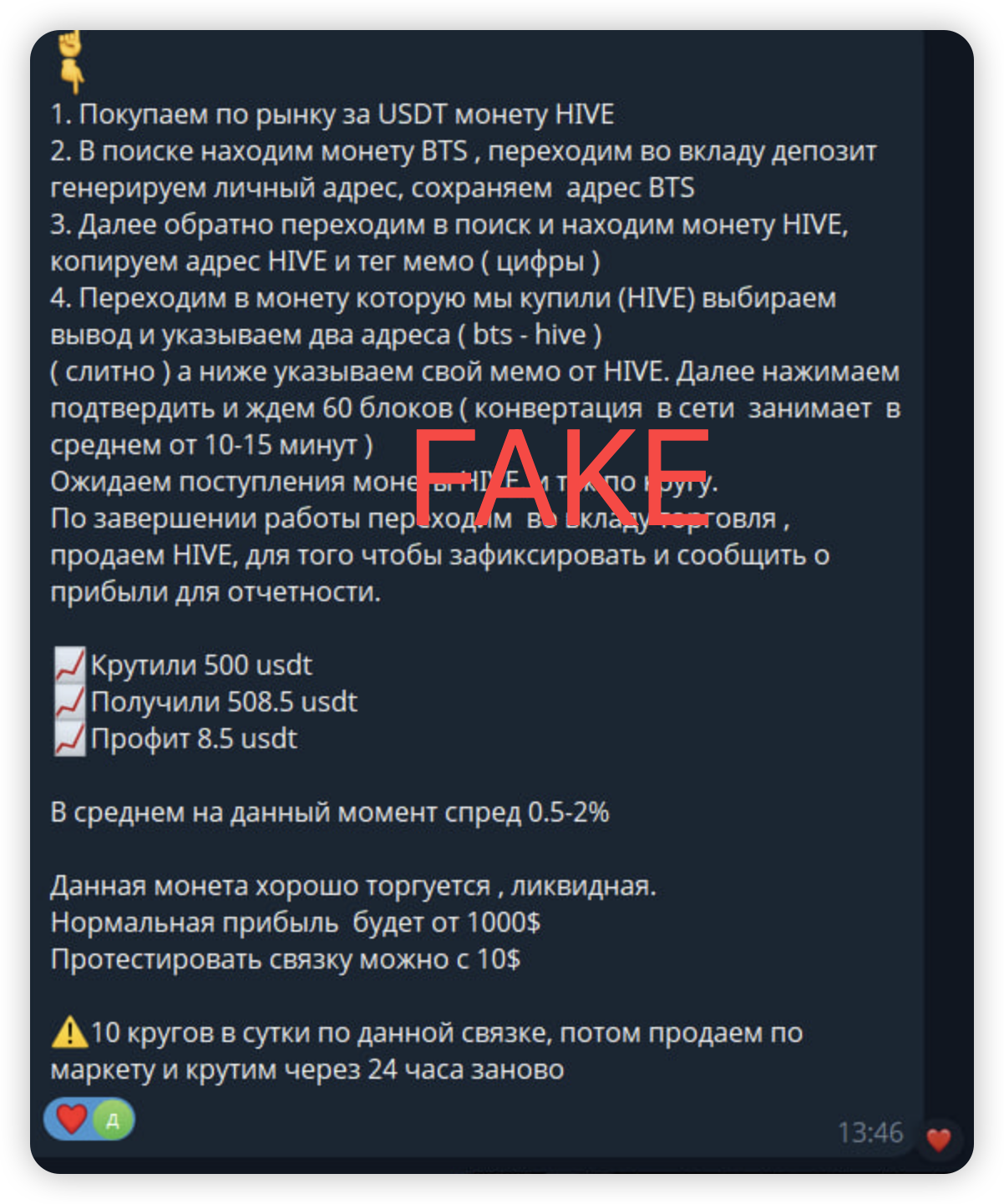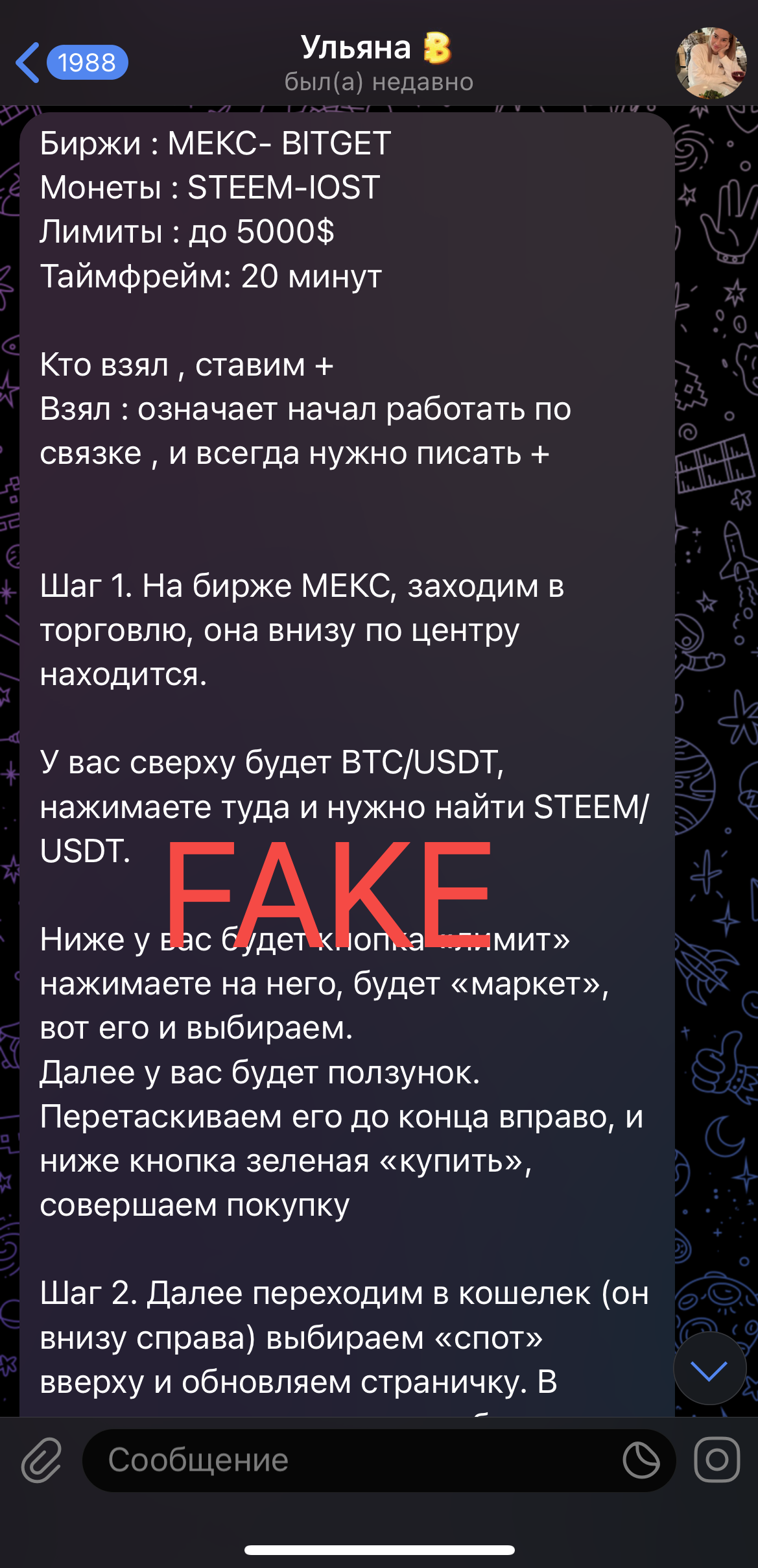As the cryptocurrency market continues to grow, more individuals are getting involved in crypto investing and trading. However, the anonymity and decentralized nature of digital assets have also created new opportunities for scammers. This article outlines several common tactics used in crypto-related scams, aiming to help users stay vigilant and avoid falling victim to fraud.
1. Whitelist Address Scams
Scammers often forge MEXC wallet addresses by tweaking the name to closely mimic official addresses. Posing as representatives of MEXC, they trick users into repeatedly transferring funds to these fake addresses, often under the guise of "deposit rebates" or similar incentives.
On networks like EOS or TLOS, where usernames can be customized, scammers take advantage of this feature to create deceptive names like "MEXC TLOS," making them appear legitimate.

Once the fake address is set up, they entice users with promises of attractive rewards to deposit funds into it.
After receiving a deposit, scammers typically take one of two approaches. Sometimes, they vanish immediately without returning any tokens, executing a one-time scam. In other cases, they return a small portion of the funds along with a so-called "reward" to appear trustworthy. They repeat this tactic to gain the victim's confidence, only to eventually defraud them of a much larger sum.

Example: A user has the MEXC username "makemoney." After obtaining this information, a scammer creates a fake EOS address named "mαkemoney." The scammer then claims this is the user's new EOS deposit address on MEXC and promises extra EOS for deposits. Once the user sends funds to this fake address, they quickly realize they've been scammed.
Important Reminders:
1) Adding an address to your withdrawal list or whitelist does not automatically link it to your MEXC account. Always verify the address's authenticity before adding it. Refer to "How to Set Withdrawal Settings" for more details.
2) Never share your personal information with strangers.
3) Before transferring funds, always confirm the recipient address through MEXC's official website or app.
Known Fake EOS Addresses:
2. Investment Scams
Scammers often approach users on platforms like X (Twitter) or Telegram and invite them to join groups that falsely claim partnerships with major platforms or pose as official representatives. They use buzzwords like "arbitrage," "high returns," "trading signals," "interest earnings," and "cross-chain bridge arbitrage" to build credibility. Fake group members frequently post fabricated profit screenshots to reinforce the illusion.
These scams often center around enticing opportunities such as new token investments that aren't listed on reputable exchanges, ICOs, gambling or betting schemes, pyramid and Ponzi schemes, or fake interest-bearing products. While they may appear legitimate at first, users who get involved frequently end up experiencing significant financial losses.
Arbitrage Scam Case: A user saw a so-called "HIVE arbitrage tutorial" in a community group. The scammer used a pitch like "Deposit 100, get back 120, earn 20 instantly" to entice participation. The user's UID on MEXC was 123456. After obtaining this UID, the scammer created a fake deposit address resembling uid123456. Following the scammer's instructions, the user transferred funds to this fraudulent address. The scammer then sent back the investment amount along with the so-called "profit" to the user's legitimate HIVE deposit address on MEXC. After earning returns from multiple small test transactions, the user's trust increased, and gradually made larger deposits. When the user eventually sent a significant amount to the scammer's address, the scammer vanished with the funds, resulting in substantial losses for the user.
Reported Scam Addresses:
- bitgethive:659279463
- bitgethive:245508188
- bitgethive:862062286
- mxchivebonus:112287
- mxchivemxcsteem:112403
- mxccommxchive:112456
- mxccommxchive:112776
- mxchivebnb:111360
- mxchive:112825
- hivemexc:112952

Cross-chain Bridge Arbitrage Scam Case: A user was lured by scammers into transferring their STEEM assets from MEXC to an IOST address provided by the scammers, under the pretense of earning high returns via a cross-chain bridge. At first, the user made several small transfers and received part of the "profits" as promised. This gradually built trust, and the user joined a group set up by the scammers. Following instructions in the group, the user proceeded with larger transfers. However, after multiple high-value transfers, no further returns were received, and the user eventually realized they had fallen victim to a scam.

Important Reminder:
1) Anyone falsely claiming to be a MEXC partner or affiliate, affiliated with MEXC, or impersonating MEXC official staff is likely engaged in fraud. Beware of all forms of scams, including investment, betting, and gambling schemes.
2) Only conduct transactions via the official MEXC App and website.
3) Be cautious of any inducement to download third-party "arbitrage tools."
4) Never transfer funds to addresses belonging to strangers or other individuals.
3. Impersonating Friends
Some scammers hijack or impersonate your friends' social accounts, requesting cryptocurrency for emergencies or temporary cash flow issues. They typically avoid video or voice verification to dodge identity confirmation.
Important Reminder: Before sending funds to anyone claiming to be a friend, always verify their identity directly.
4. Off-Platform Trading Scams
Scammers may build trust by pretending to be romantic partners, close friends, or investment mentors, eventually luring users into off-platform transactions. Common tactics include:
1) No payment after receiving tokens: You send crypto first, but the buyer never follows through with the payment.
2) No crypto after payment: You pay first, but the seller doesn't deliver the tokens.
3) Fake tokens: You pay, but the scammer sends counterfeit USDT not issued by Tether.
4) Delegated trading scams: The scammer first asks you to help sell a small amount of crypto on-platform. Later, they send fake USDT in a large transaction to scam you out of more funds.
Important Reminder: Avoid off-platform trades at all costs. These transactions carry high risks, and MEXC cannot guarantee the security of your assets. Always trade within the platform for your safety.
5. Fake Token Scams (Counterfeit MX)
Scammers may set up Telegram groups with names like "MEXC Official Arbitrage Group" and offer fake arbitrage opportunities. They instruct users to send ETH to a specific wallet in exchange for MX tokens. However, the tokens sent back are counterfeit and not issued by MEXC.
Important Reminder: Always rely on official MEXC announcements for event information. Only access events and promotions through the official website or app.
As the crypto market grows and evolves, scam tactics are becoming more sophisticated, presenting serious risks to investors. To protect your assets, it's crucial to stay vigilant, steer clear of off-platform transactions, and rely solely on official information sources. Strengthening your security awareness and consistently following proper safety procedures remain the most effective ways to safeguard your crypto holdings.
For more tips on scam prevention, account protection, and crypto safety, explore the Security Knowledge section on MEXC Learn. Structured learning is key to strengthening your risk awareness and securing your assets.